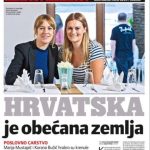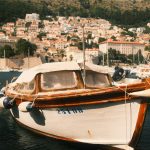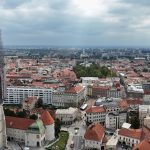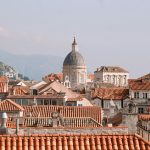The 2nd International Conference on Diaspora Tourism opens in Split on May 17, 2019. In the build-up to the conference, TCN meets some of the returning diaspora who have made a success of life in Croatia. Next up, Tanja J. Polegubic.
1. Born in Australia, returned to Croatia, something that many diaspora dream of doing. Tell us briefly about your journey.
I’ve now got an office with a balcony overlooking Split Riva and Harbour – which is surprising, as I never expected to be living here. I was always adamant Croatia would only ever be a holiday destination. The ability to work remotely and Croatia’s accession into the EU changed things.
I made my decision in 2015, but due to my father’s illness and ultimate passing, stayed in Canberra. I came in 2017, and packed my job in my suitcase, so it was “low risk” being here, having a job from outside. I still travelled to Australia, Asia and the Pacific for work in this period, all the time knowing I wanted to transition into life and business here, so I soon started Saltwater, my coworking space and first-ever business.
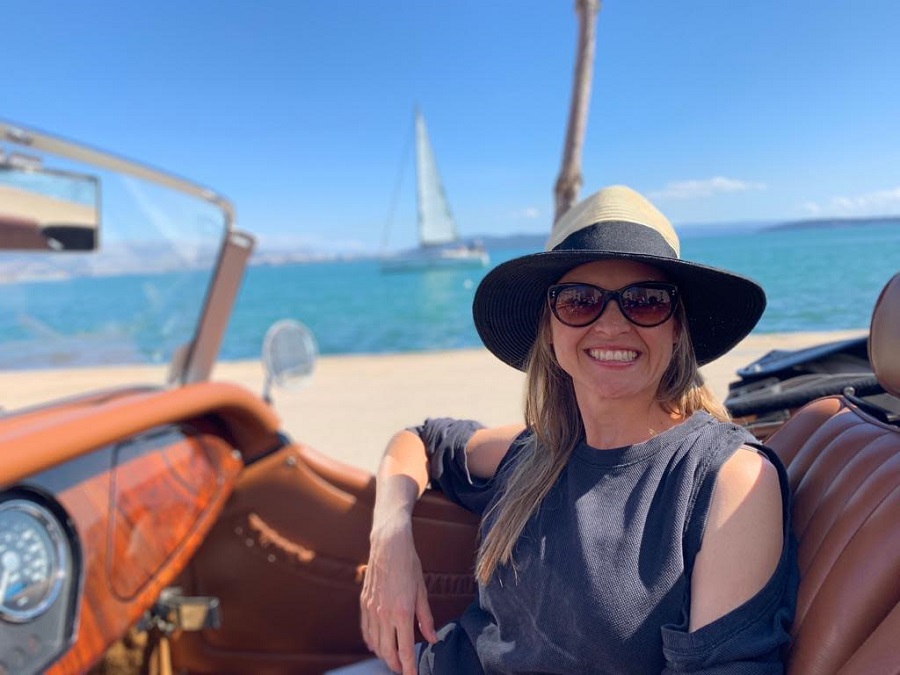
Saltwater started as a ‘side hustle’ to test and build the concept, which is a space to work, run business networking events and workshops. We’ve since had over 300 people pass through our doors – and more recently, were chosen to join the Split Croatian Chamber of Economy’s (HGK) incubator program for women entrepreneurs. This means we continue a slightly modified business as usual – while delivering projects I want to work on locally and in the Mediterranean.
We are soon delivering an EU Smart-Ag project. I also just returned from representing Croatia at a EUSAIR forum, for creative women-led businesses and the economic growth strategy for the Adriatic and Ionian region. There’s plenty of opportunities for Saltwater and our members, especially women, now we have the support of the HGK.
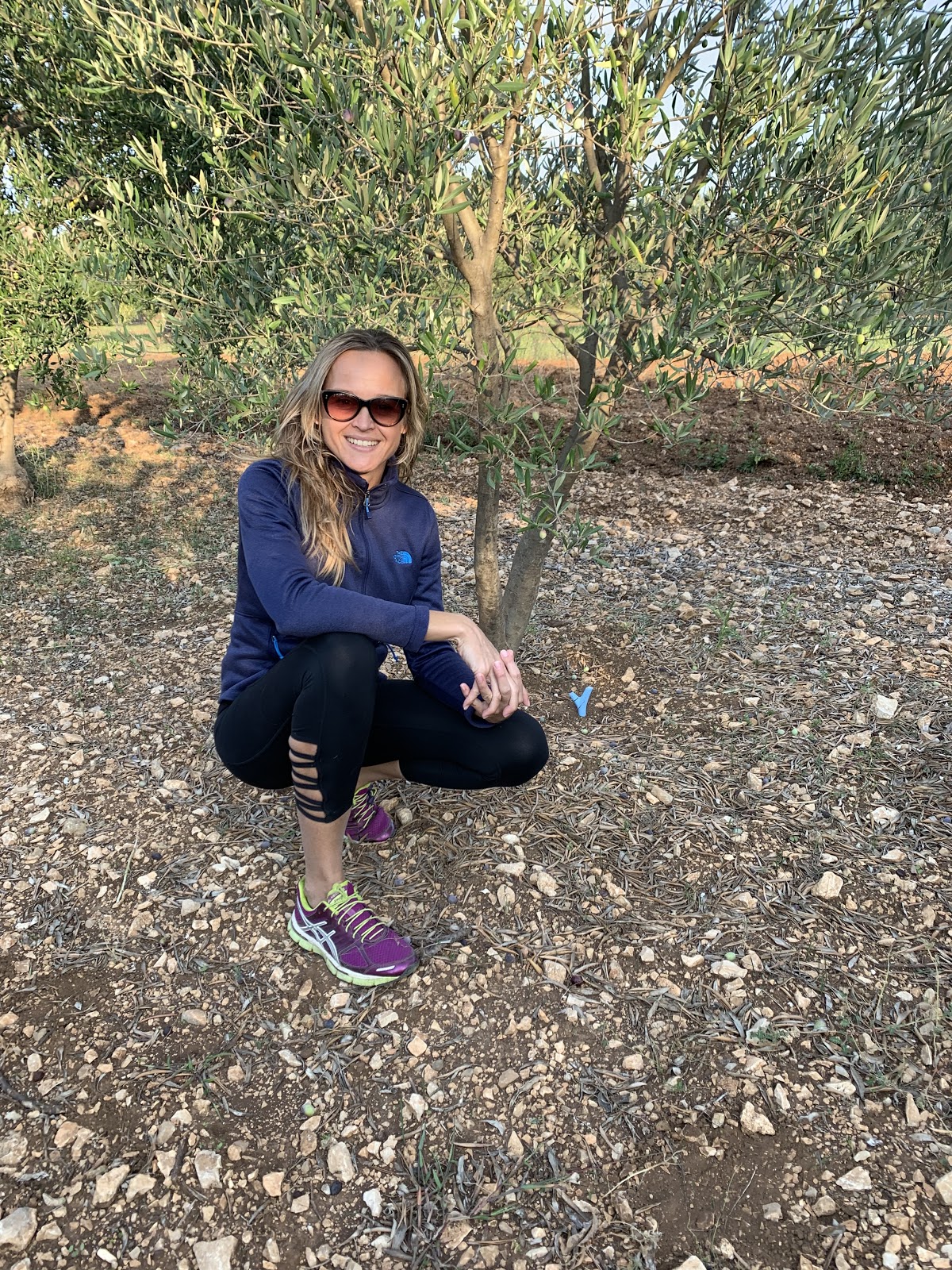
2. Looking back, what were your hopes, expectations, and fears about moving to Croatia?
To make it work here! To be collaborating with other forward-thinkers – people who also see the potential markets and opportunities here, and this has proved true.
No fear. As I mentioned, it was fairly low-risk for me, as my working arrangement enabled me to be here. Also, I have been coming here since childhood, so the ‘terrain’ and even mindset were familiar.
Admittedly, the first 2 years were tricky, with personal grief, greedy landlords, and my lifelong support network very far away. With the support of some incredible people I’ve met here, meditation, introspection – and being accepted into the HGK incubator, I’ve entered the 3rd year with a positive outlook and things have been going remarkably well.
I can at last say “I love it here” and more importantly, I’ve got this!
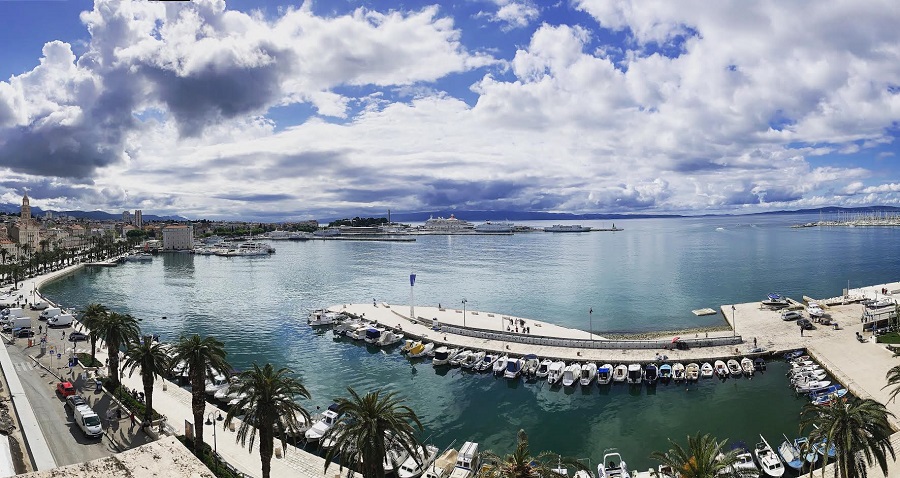
3. How supportive was your Croatian community back home at the time?
I would say secretly concerned, but certainly encouraging. It’s only a plane ticket back at the end of the day, isn’t it? Still, everyone’s heard horror stories. I had heard great things about the scene in Split, and undertook quite a bit of research and contacted people in advance. I also made a brief visit to Split in 2016, as I had only ever been here 1 night prior to picking it as a new home.
Like many Australian-born Croatians, and I imagine other diaspora around the world, my family upbringing was one of pride for this faraway homeland. Almost every other living relative I had was here. We did things differently to most other kids – language school, food, soccer, folk dancing, church. I apparently only spoke Croatian — and fluently, until age 4. There was a certain mythology to this place and you were born into this struggle among a community who celebrated- and fought to assert, their identity. Being here now is like the sweet reward to a struggle you’ve participated in your entire life. I think that’s what people see when someone takes the leap to come here, so it is often supported, and lived through vicariously – not everyone can come here, for a number of reasons.
As a longtime traveller, I just view it like jetting off to live as an expat anywhere in the world – you can stay for a few years, or a few decades. Life can take you anywhere, so there really should be no fear, possibly it’s the pressure of ‘making it’ as there’s such an emotional connection when it comes to the ancestral ties here. I think the situation is different if you go to Singapore and return, compared to returning from say Split. It’s also part of the European Union, meaning your market is 500 million, not just 4 million. If you look at things this way, this is a perfect EU base if you can overcome the usual snags.
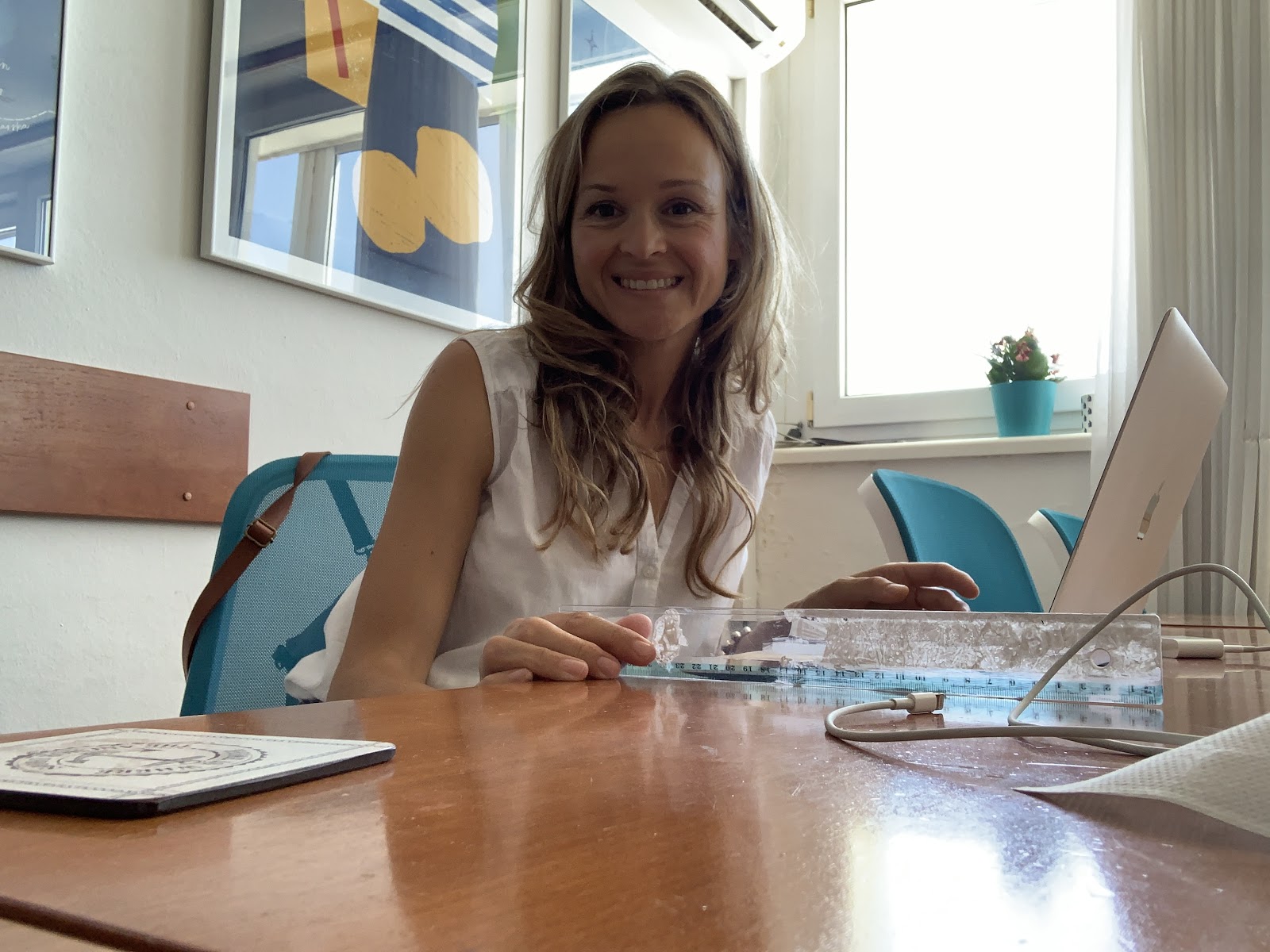
4. What were the main differences in what you expected to find in Croatia and the reality of living in Croatia?
The pace and living seasonally, i.e. in a tourist town. I had this romantic notion about living in the Med, and the frustrations of things being slow kicked in, but have passed. Even today, if I’m walking “too fast” for the locals I get a soft reminder to go “pomalo”. Which is great. It’s a reminder to be more present; poised. Coming from Canberra, I also didn’t realise what living in a tourist town would be like! It must seem to some we’re on a perpetual holiday, but there’s a cadence to the year, which is actually a beautiful thing if you embrace it. Even though the crowds, workers and temperatures reach boiling point by the end of Summer, living according to the seasons feels like you’re living a life much more in tune with nature – for me at least.
To mirror some of the other responses to this question, yes, the general expectation you will struggle with bureaucracy and encounter instances of personal greed. I am still
surprised by the passivity here and negativity of some people, the number of youth leaving – and no wonder, as there are very few role models or people encouraging you to stay. Also, the dumpster diving for bottles by people of all ages.
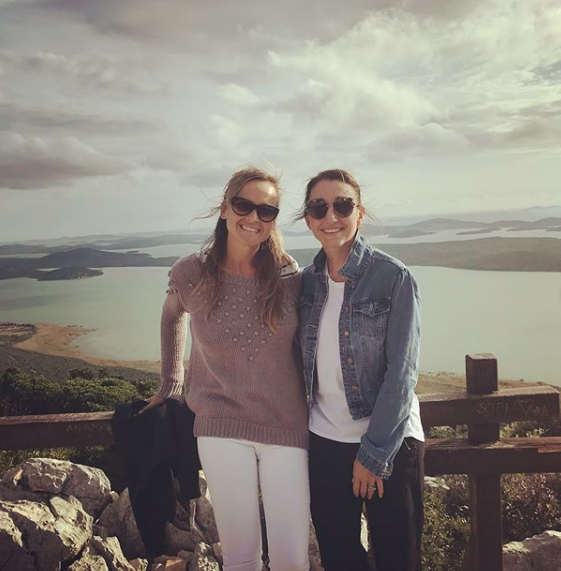
5. Many diaspora think of returning, but few do. In truth, there is little information out there about real-life stories and help/info about the process. What advice do you have for those who are thinking about making the move?
I can only speak from my experience. If your work or skills are portable:
⦁ Try being here for a good part of a year, including outside your usual time if that’s just been summer
⦁ Have at least some kernel of an idea of what you would do here, and begin researching and exploring this.
⦁ Connect with people in the field you would like to be in; ask them for insights.
⦁ Ask for help. Tell people what you’re looking for – I’ve found people are very helpful. Likewise, be willing to help in return in some way
⦁ Be open to something other than your original idea. Things will feel different when you’re on the ground, and opportunities always open up if you are receptive.
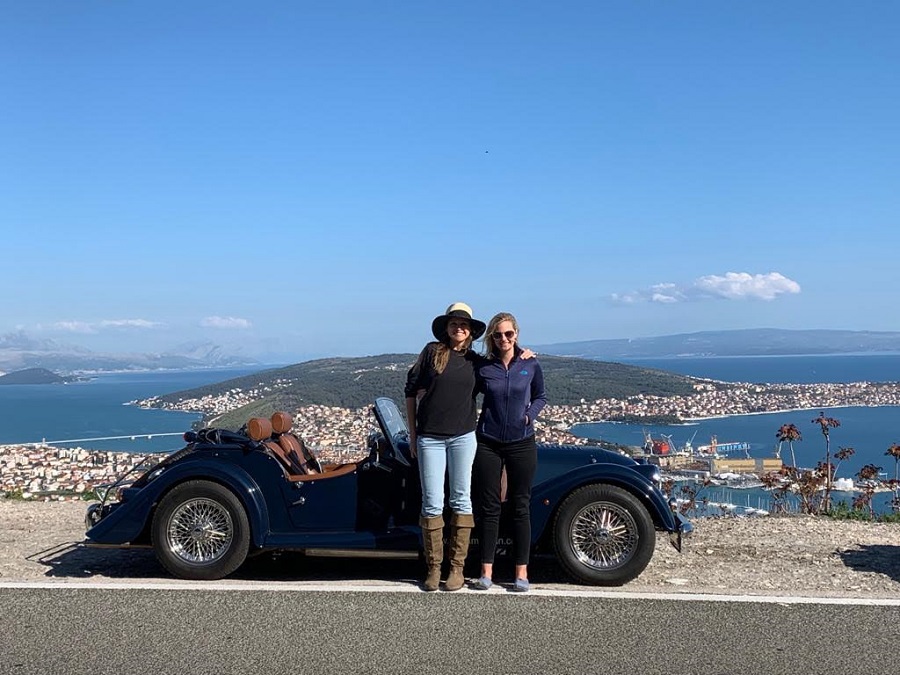
6. How were you perceived in Split as diaspora moving back – was the welcome warm?
The welcome has been warm as far as I’m aware. Family here have seen me longer than I’ve been before, and seen the business growth – so perhaps think it for real, for now! I am pleased to have made new friends and carry on as a regular member of society, albeit with an Australian accent when I speak Croatian. As a citizen, I have an equal legal right to be here as anyone else ‘from’ here, thus I expect to be treated the same as anyone else. It is clear I’m not from here, so I think the decision in their eyes affirms I consider Croatia better if I am here, so it is positive once the disbelief subsides. Living in both countries can be great. Right now, I prefer being by the sea and in the heart of Europe.
7. Through a lot of hard work, you have been very successful, while many foreigners have given up and left Croatia. What are the keys to success in doing business in Croatia in your opinion?
I am still progressing – I am still far from where I know I can be. The business is still young, and I am in it for the long haul. My version of success is measured by joy in what I do, life satisfaction and meeting the goals I’ve set thus far – in which case yes, I am succeeding.
The ways I have found useful are being patient, being part of your local community and respecting things are the way they are here for a reason. Also knowing who and what to filter out. When it comes to moving forward, a lot of doors here are open, i.e. unlocked. They can just be very heavy and may never have been opened before. So, if you can find a way around the inevitable negativity, and attitude things are impossible or ‘too hard’ then you can succeed here. Perseverance. And a really supportive circle around you; the people connected to Saltwater have helped me on every level imaginable.
8. What is the diaspora community like in Split and how integrated is it with locals?
The long-running Croatian Australian and Friends Society (HADIP) often organise events, and this has a blend of locals, diaspora and expats attend, so it really depends on personal preference when the community meets. I would say there is a balance, but usually more non-local born people attending these.
Being a tourist city, it feels like almost everyone is from somewhere else, so I don’t think about this much. Knowing both languages I probably slide into both categories easier, so again, it may not apply to me. I would say both sides get along – be it for business, or pleasure. It’s a matter of shared interests in the end.
9. And finally, a word on this conference. What are you hoping to get out of it?
I’m always interested in listening to other stories and meet people I will resonate with. Several themes in the conference interest me, so hopefully they are informative. There is more of a gender balance than when the event was first advertised, so I am hoping even more women attend or get inspired to invest or return here. My role as a panelist is to share the story of remote working and the projects we work on at Saltwater and the incubator. I hope our collective stories reach anyone considering moving, doing business or a project in Dalmatia, especially women who need support, or anyone curious about moving to Split.
Thanks for the opportunity to share this.
For the full programme at the 2nd International Conference on Diaspora Tourism (in English and Croatian), click here.
For more on the Croatian diaspora, check out the TCN dedicated section.



